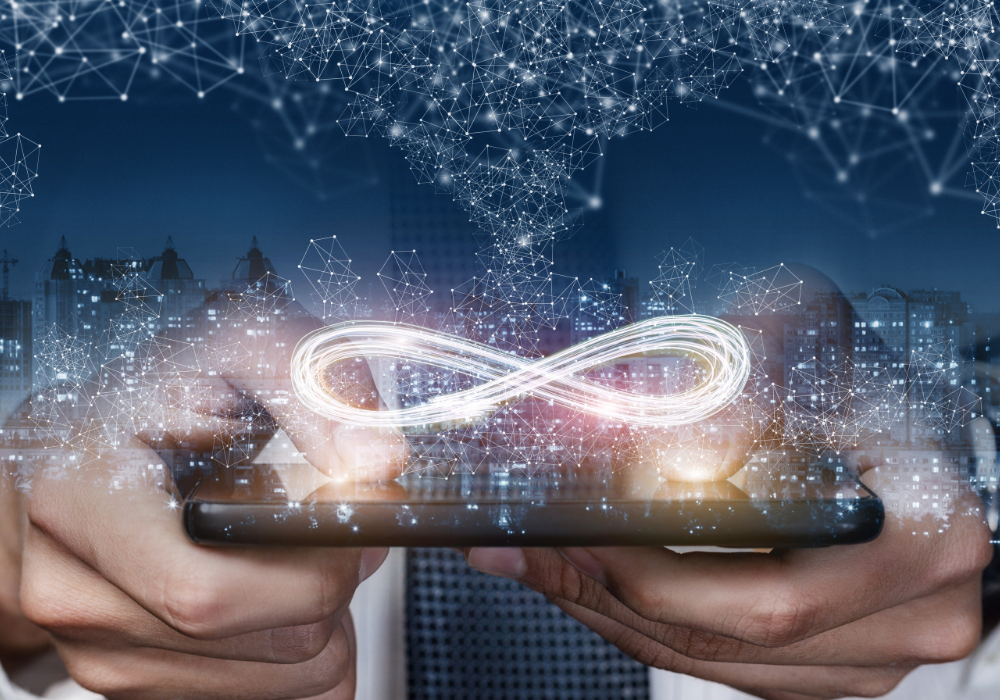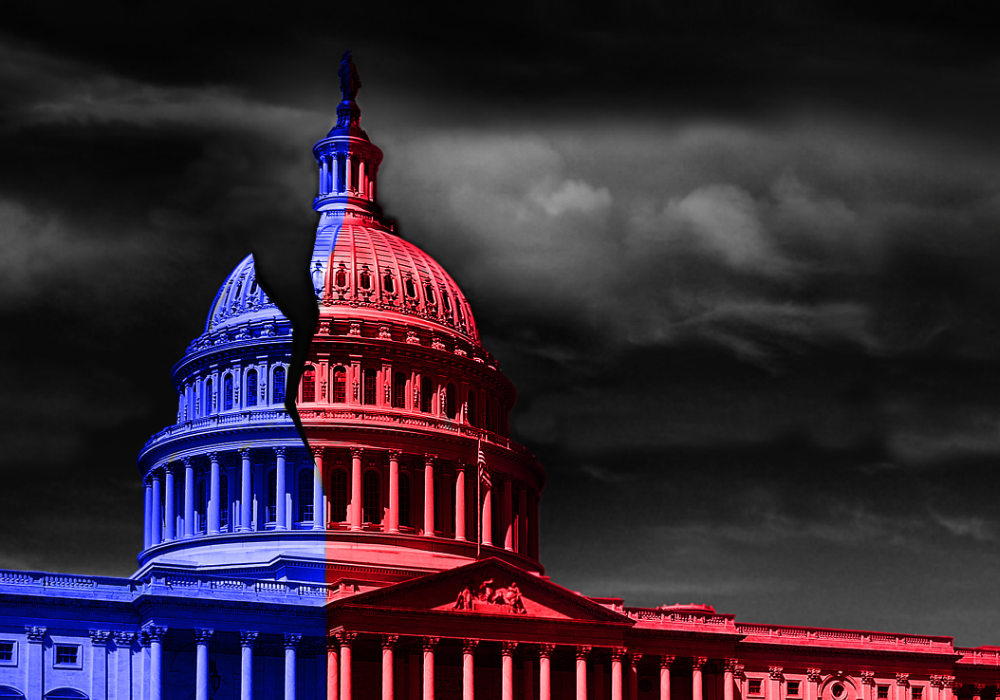The world is changing fast, and today’s youth are struggling to keep up.

For previous generations, life followed a predictable script—go to school, get a job, buy a house, start a family, and eventually retire. While there were always challenges, the general roadmap to adulthood remained clear. But for Gen Z and younger, that structure has crumbled. Traditional milestones are either unattainable or no longer appealing, leaving many wondering what a successful, fulfilling life is even supposed to look like.
Massive societal shifts have made the future feel less certain than ever. Economic instability, climate change, technological advancements, and cultural transformations have all contributed to a growing sense of unease. The rapid pace of change means that just as people begin adjusting to one shift, another disruption upends everything again. Stability, once taken for granted, now feels like a luxury.
From skyrocketing housing costs to the rise of AI, these shifts aren’t just inconveniences—they’re reshaping identity, purpose, and meaning on a fundamental level. Here are 13 of the most disorienting societal changes leaving the next generation feeling untethered.
1. Homeownership is now a pipe dream for most young adults.

Buying a home was once a rite of passage, but skyrocketing housing prices, stagnant wages, and overwhelming student debt have turned it into an unreachable goal for many. The median home price has risen far beyond what most early-career professionals can afford, forcing people to rethink what financial success looks like. According to Alexander Hermann and Peyton Whitney at the Harvard Joint Center for Housing Studies, home prices grew by 43% between 2019 and 2022, while incomes increased by just 7% during the same period.
Rather than building wealth through homeownership, many are stuck in expensive rentals with no path to ownership. Some have embraced alternative living, from van life to long-term co-living spaces, while others have had to move back in with family well into adulthood. With real estate markets continuing to favor investors over first-time buyers, the idea of settling down and securing a home feels more like a fantasy than an achievable milestone.
2. Marriage and family life are no longer the default.

Getting married and having kids used to be expected, but for an increasing number of young adults, that life path no longer holds the same appeal. Sky-high living costs, shifting gender roles, and changing priorities have led many to delay marriage or opt out entirely.
A 2025 Business Insider report by Allie Kelly highlights that the U.S. birth rate has been steadily declining for over a decade, reaching a historic low in 2023, with many Americans wanting more children but facing economic challenges that make it difficult to expand their families.
Without the societal blueprint that guided previous generations, many feel caught between wanting stability and resisting outdated norms. The future of relationships and family life is being rewritten in real-time, and no one knows what the final version will look like.
3. The traditional career path is dead, leaving many unsure of what’s next.

The idea of landing a stable job, working up the corporate ladder, and retiring with a pension has become a relic of the past. Today’s job market is unpredictable, with automation, outsourcing, and economic instability making long-term career planning nearly impossible.
Even so-called “safe” careers are no longer guarantees of stability, forcing workers to constantly adapt. For instance, a report from the Brookings Institution by Harry Holzer found that automation has significantly impacted clerical and production jobs, leading to job displacement and wage declines in these sectors.
Instead of settling into a lifelong profession, many are bouncing between industries, juggling gig work, or trying to monetize hobbies just to stay afloat. While some thrive in this flexible environment, others feel like they’re always one step away from financial ruin. The pressure to “hustle” at all times makes it difficult to feel secure, leaving many questioning what professional success even looks like anymore.
4. Social media has created an identity crisis on a mass scale.

Past generations compared themselves to the people in their immediate surroundings. Today, young people are constantly bombarded with highly curated versions of everyone’s best moments, making it nearly impossible to separate reality from illusion. The pressure to present a flawless digital persona can be exhausting, leading to self-doubt, insecurity, and even dissociation from real life.
Some embrace social media as a tool for self-expression and opportunity. Others, however, find it draining—an endless performance that never truly reflects who they are. The battle between authenticity and digital perfection has left many feeling stuck in a cycle of comparison, always striving for an unattainable version of themselves. In a world where perception often feels more important than reality, it’s no surprise that self-image has become more fragile than ever.
5. The rise of AI is making people question their own value.

Artificial intelligence is reshaping industries, automating jobs, and even encroaching on traditionally human creative fields like writing, music, and art. As AI continues to outperform people in tasks once considered uniquely human, an unsettling question arises: What happens when machines can do everything better than us?
The fear isn’t just about job loss—it’s existential. If AI can generate art, write poetry, and compose music, what does that say about human creativity?
Some see AI as a tool for innovation, but others fear it will erode the need for human labor and self-expression. As automation advances, people are left questioning what makes them truly irreplaceable in a world where machines keep getting smarter.
6. Climate change is a looming disaster that’s impossible to ignore.

For today’s youth, climate change isn’t an abstract concept—it’s an ongoing crisis with tangible consequences. Wildfires, floods, record-breaking heat waves, and environmental degradation have become unavoidable realities, making it hard to imagine a future untouched by catastrophe. The sheer scale of the problem leaves many feeling powerless, stuck between hope and resignation.
Some cope by taking action, joining environmental movements, or changing their personal consumption habits. Others experience deep eco-anxiety, convinced that individual efforts are meaningless in the face of government inaction and corporate greed. With the planet’s fate uncertain, the ability to plan for the long term feels more like a privilege than an expectation.
7. Religion is fading, leaving many searching for new sources of meaning.

Religious institutions once provided a sense of structure, morality, and community, but attendance has plummeted, particularly among millennials and Gen Z. Fewer young adults are affiliating with organized religion, leaving many to navigate questions of purpose and morality on their own.
Some turn to spirituality, philosophy, or therapy to fill the void, while others find meaning in activism, creative pursuits, or personal growth. Without a shared belief system shaping values and traditions, there’s more freedom—but also more uncertainty.
For many, this shift has created a deep longing for something bigger than themselves, yet they struggle to define what that is. The erosion of religious frameworks has left a cultural gap, and no one is quite sure what, if anything, will replace them.
8. The internet has given unlimited access to information—but not wisdom.

People today have access to more knowledge than any generation before them, yet that hasn’t necessarily led to clarity or confidence. Misinformation spreads as quickly as facts, social media amplifies outrage, and the sheer volume of content makes it difficult to know what to trust. Instead of feeling empowered, many feel paralyzed by conflicting narratives and a constant flood of headlines.
Algorithms reinforce echo chambers, shaping people’s views without them even realizing it. Doomscrolling fuels anxiety, and the pressure to stay informed at all times leaves many feeling mentally drained. In an era where information is endless but critical thinking is harder than ever, the real challenge isn’t finding knowledge—it’s learning how to filter out the noise without losing perspective.
9. Friendships and relationships are increasingly superficial.

Despite being more digitally connected than ever, many people feel lonelier than previous generations. Social media, dating apps, and online communities have made it easier to meet new people, but harder to form deep, lasting relationships. Everything moves fast, and with endless options at their fingertips, people often hesitate to invest in long-term commitments.
Casual connections dominate, while genuine intimacy feels harder to maintain. Many struggle to balance the convenience of virtual interactions with the need for real-world bonds. The result is a paradox—more ways than ever to communicate, yet a growing sense of isolation. The challenge isn’t just making connections but keeping them in a world where relationships often feel disposable.
10. Political polarization has made it exhausting to engage with the world.

Every topic seems to be a battleground, and navigating conversations—both online and in real life—feels more like a minefield than an exchange of ideas. Social media has amplified divisions, making even the most well-intentioned discussions spiral into hostility. With every issue framed as an all-or-nothing stance, many feel pressured to take a side or risk being cast out of their own communities.
For some, this has led to political burnout, where disengaging entirely feels like the only way to stay sane. Others become hyper-engaged, unable to disconnect from the never-ending cycle of outrage. The constant demand to stay informed, pick a side, and react instantly has turned civic engagement into an exhausting emotional rollercoaster, leaving many feeling more cynical than ever.
11. Dating feels like a numbers game, not a meaningful connection.

Dating apps have made meeting people more accessible than ever, yet the abundance of choice has created a paradox—rather than fostering deeper relationships, it has made commitment feel optional. Swiping culture encourages a mentality of always searching for something better, making it difficult to build lasting emotional bonds.
Ghosting, breadcrumbing, and instant gratification dating patterns have left many people feeling emotionally drained. While apps promise efficiency, they often make romance feel transactional, reducing potential partners to profile pictures and quick conversations. In a system designed to keep people engaged rather than matched, dating often feels less about finding love and more about endlessly cycling through options.